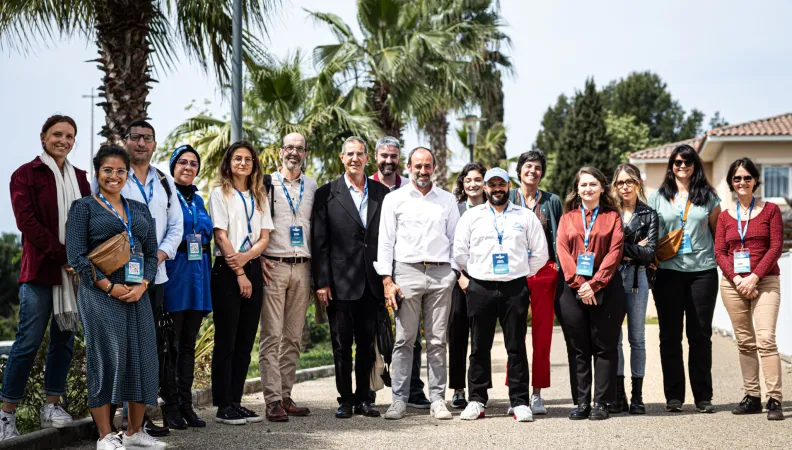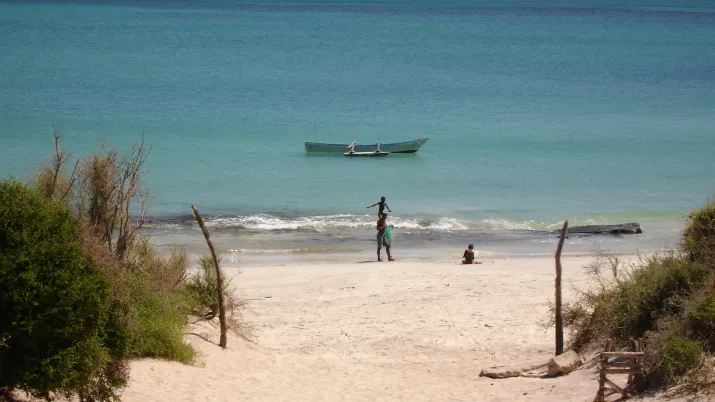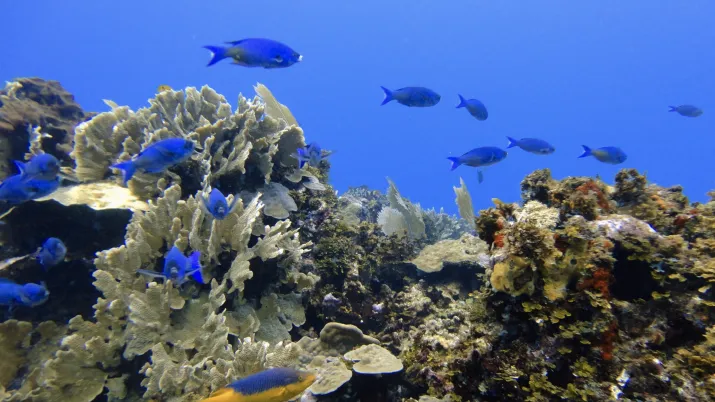Share the page
After 6 years of partnership, the participative governance of Mediterranean MPAs shows promising results
Published on

The Mediterranean basin is today considered a global biodiversity hotspot. Its exceptional flora includes some 15,000-25,000 species, 60% of which are endemic to the region. However, over-fishing, coastal development and the impacts of climate change have all put this ecosystem under increasing strain, resulting in the Mediterranean being one of the most threatened marine regions in the world. For years, safeguarding the Mediterranean has relied on regional cooperation, cemented through the COGITO project. As part of the 16th edition of the Regional experience-sharing workshop organised by MedPAN, one of the COGITO project sponsors, the FFEM took part in the project’s final event, held on 15 - 19 April 2024 in La Londe-les-Maures.
Marine Protected Areas (MPAs) are recognised as crucial tools for protecting and managing oceans facing man-made or natural pressures. Any new MPA must be supported through effective management of the area to secure more sustainable outcomes. This process requires mobilisation from public institutions, private actors and civil society organisations.
For over 30 years, the French Facility for Global Environment (FFEM) has been working towards the protection and management of marine and coastal environments, particularly MPAs, by pushing for greater synergy between the various actors involved. In the Mediterranean, this commitment was reflected through the COGITO project (Exemplary management of coastal and island territories in the Mediterranean), developed with France’s Coastal Protection Agency, the PIM Initiative, the MedPAN network and WWF Mediterranean.
The aim of the COGITO project was to contribute to supporting the integrated and sustainable management consolidation process of Mediterranean islands, coastal and marine areas for the benefit of local ecosystems and communities. The project also focused on co-management issues within target regions, to enable replicability at larger scale. Specific pilot sites included:
- Morocco: the Essaouira archipelago, Jebel Musa, Al Hoceima National Park and the Nador Lagoon
- Algeria: Taza National Park, the Habibas Islands, Gouraya National Park and El Kala National Park
- Tunisia: the Galite archipelago, Zembra archipelago and Cap Bon peninsula, the Kuriat Islands and the Bay of Monastir, along with the islands of Gremdi, Roumadiya, Sefnou and Tabarka
- Albania: Sazan Island, the Karaburun-Sazan National Marine Park and the Bay of Vlora, Cape of Rodon and the Bay of Lalzi
- Türkiye: the Kaş-Kekova and Datça peninsula Special Environmental Protection Areas (SEPA)
- Lebanon: Palm Islands Nature Reserve
The COGITO project’s final event, held 15 - 19 April 2024 in La Londe-les-Maures, saw the culmination of a 6-year partnership dedicated to the co-management of MPAs in the Mediterranean. Speakers at the event presented results and recommendations from the project.
Since 2018, various sites across Albania, Algeria, Lebanon, Morocco, Tunisia and Türkiye have developed their own co-management systems for safeguarding marine environments. According to Fabrice Bernard, Delegate for Europe and International at the French Coastal Protection Agency, co-management relies on collaboration between all regional actors. He goes on to explain that:
The COGITO project was a turning point in operational co-management, demonstrating the usefulness of such collaborations when carrying out actions on the ground. The results are encouraging and include strengthened governance, active participation from local communities and better integration of scientific expertise. Constance Corbier, who oversaw and supported the project from its inception on behalf of the FFEM, reveals that:
Intro intw
Watch the full interview with Constance Corbier:
Interview Constance Corbier
Conclusion
The six pilot sites supported by the FFEM already bear testament to this positive transformation on both an environmental and socio-economic level. The project has also shown its potential to complement a number of other environmental initiatives in the Mediterranean. Although it has now come to an end, the project will certainly create many new collaboration opportunities to protect the Mediterranean.
Further reading
The FFEM publishes a new capitalisation on Marine Protected Areas (MPAs)
Published on august 30 2021



